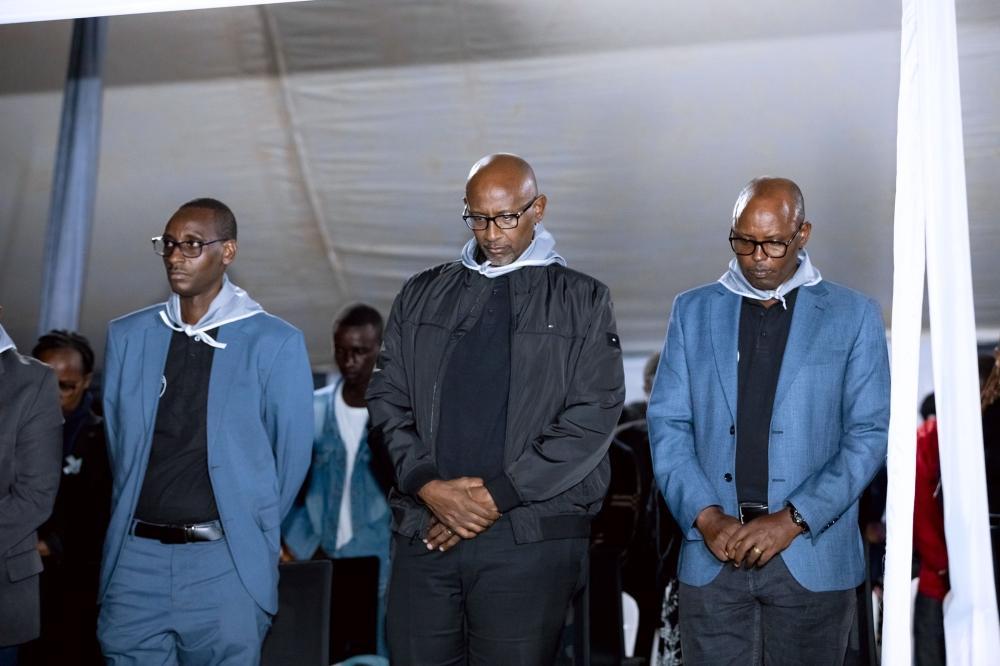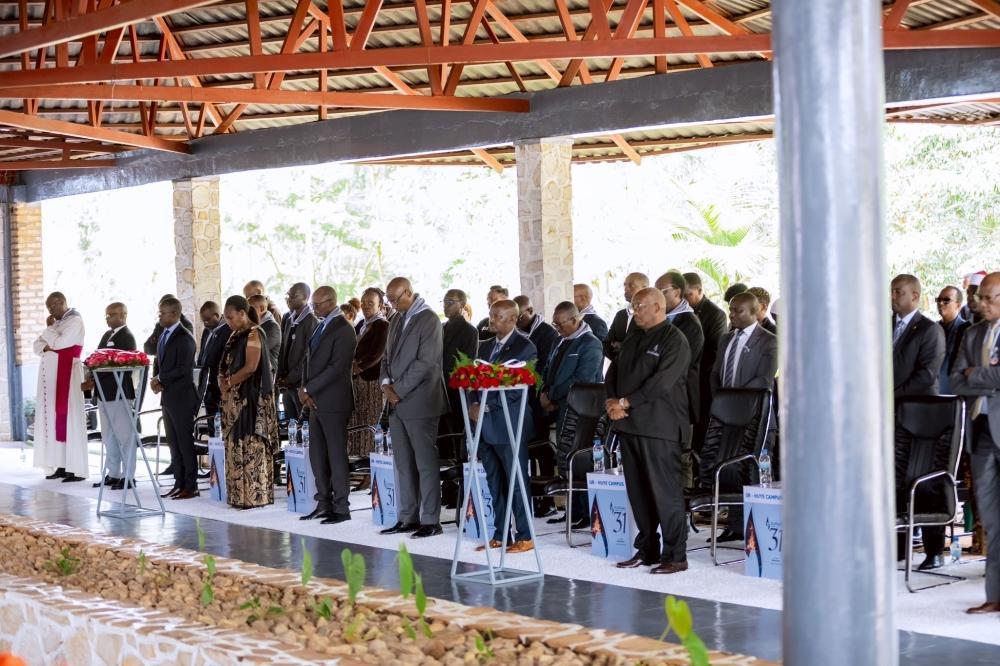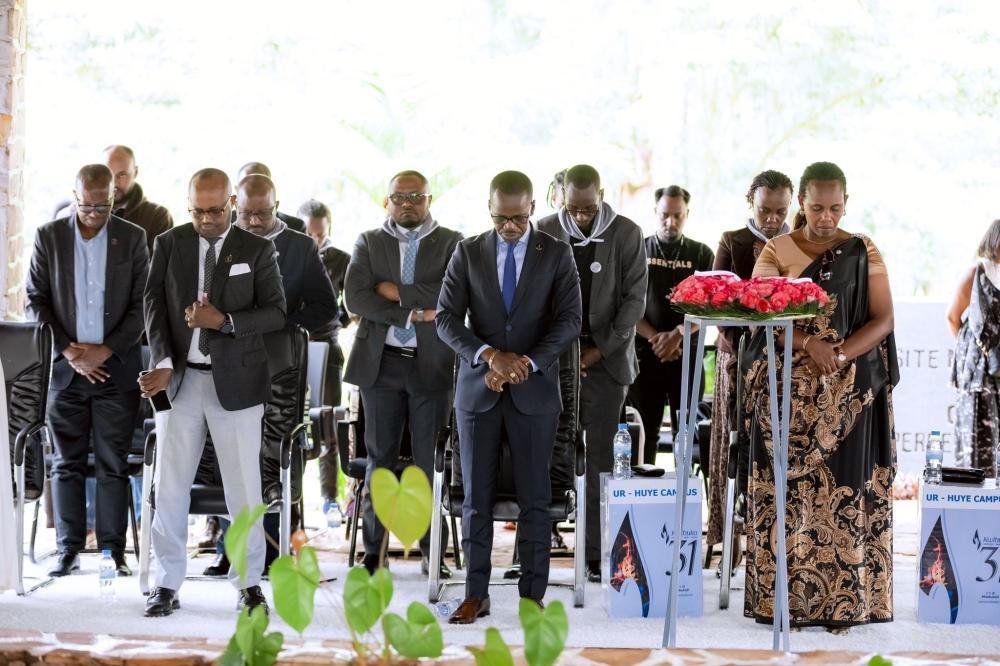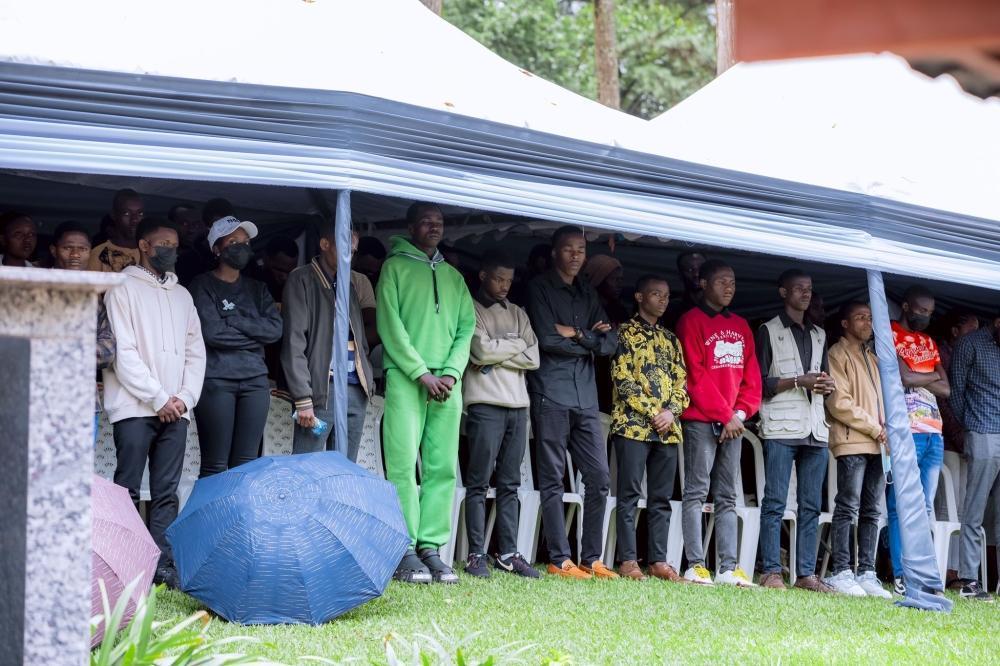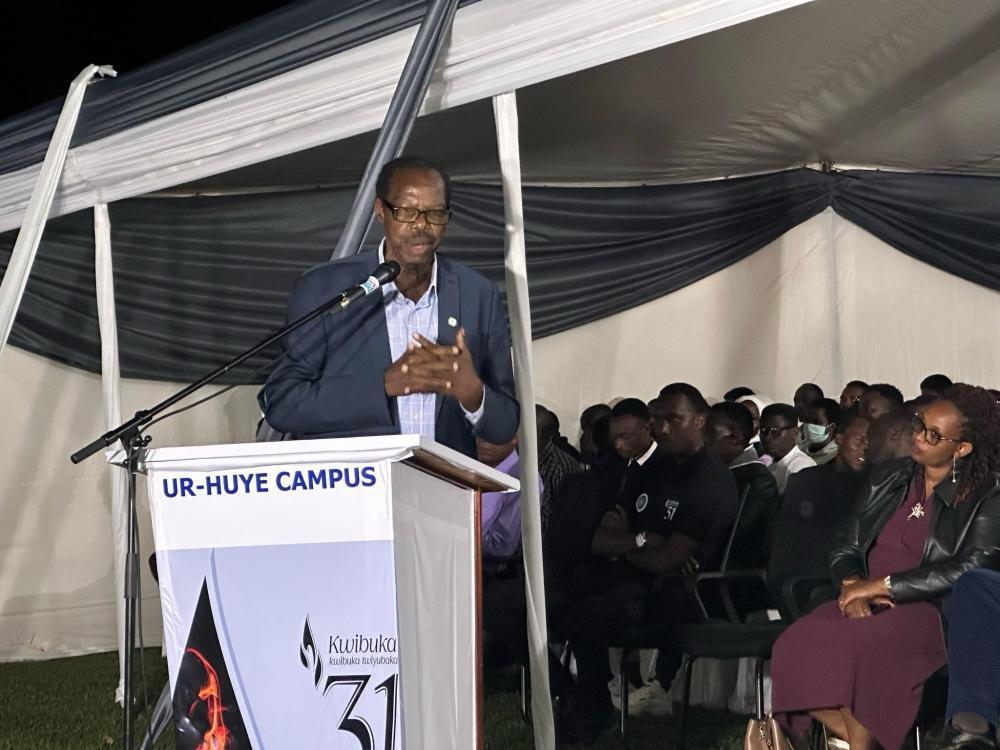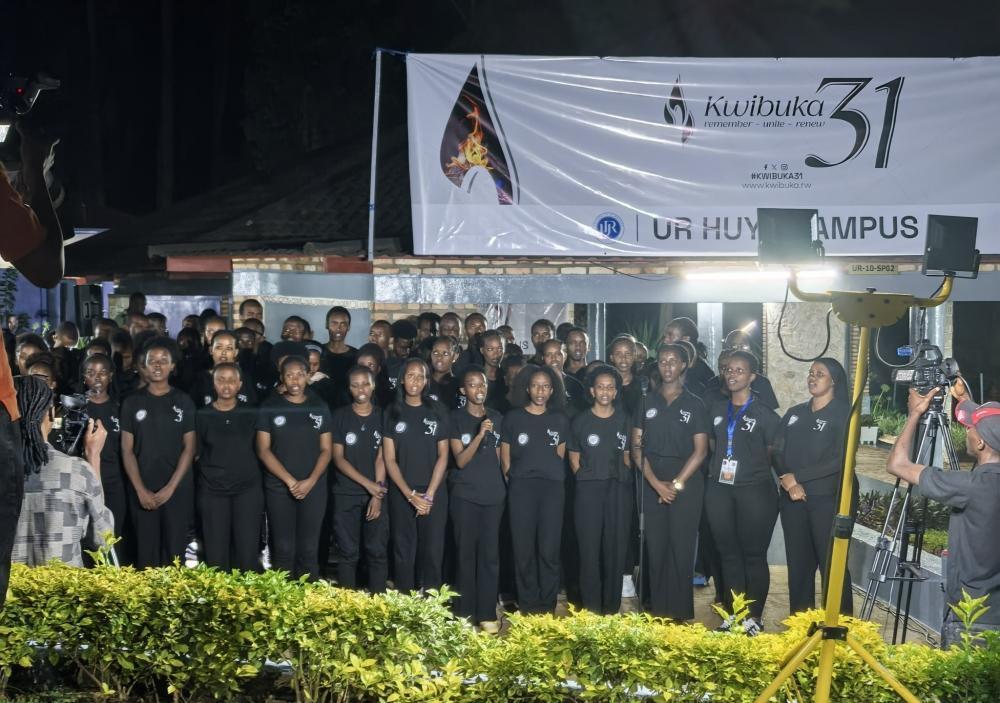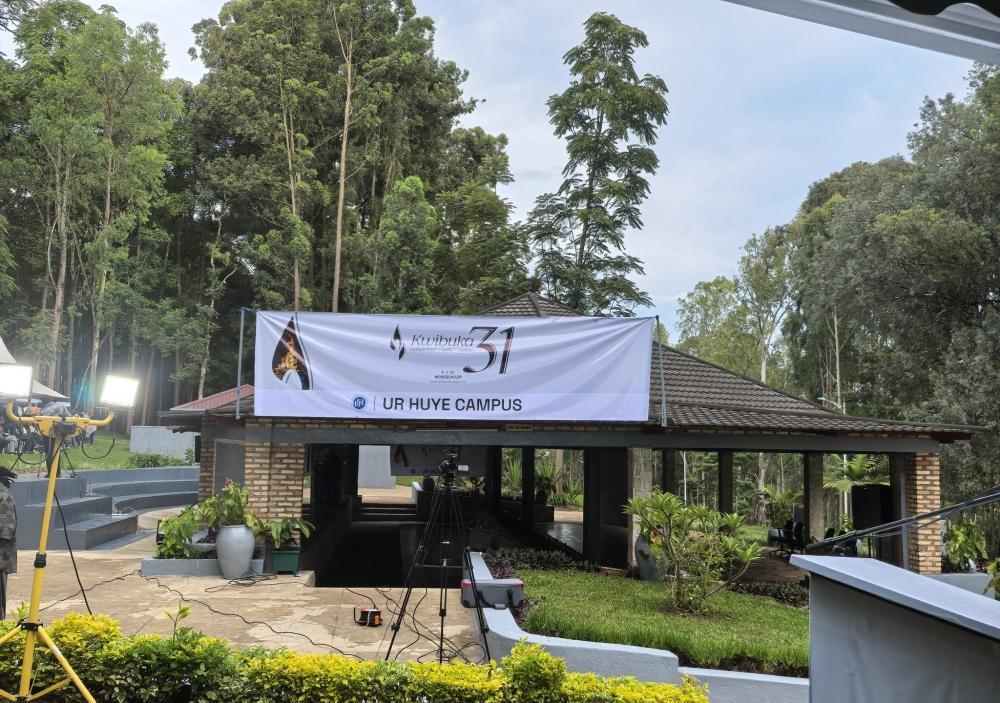Africa-Press – Rwanda. The Minister of Education, Joseph Nsengimana, has emphasized that the University of Rwanda—once a place where students and staff played a role in the Genocide against the Tutsi—is now being reshaped into a foundation for unity and transformation.
Speaking at a commemoration event held on Tuesday, April 22 at the Huye campus, Nsengimana underlined the irony and tragedy of educated people turning against their fellow citizens in 1994.
He also highlighted the progress made since then, especially with education being used to rebuild the nation.
“Those who were educated here should have been the ones to save others,” Nsengimana said.
Mourners observe a moment of silence at University of Rwanda, commemoration event.
“But that’s not what happened. Instead, they played a significant role in planning and executing the Genocide.”
The Minister called on the academic community to continuously reflect on this history and to not only honor the Genocide victims but to ensure that such betrayal of humanity never happens again.
He pointed to reforms in the education sector, particularly programmes introduced by the Ministry, aimed at promoting social healing and national cohesion.
These include curricula in Clinical Psychology, Conflict Resolution, Social Work, Civic Education, and Transformative Education, which are designed to equip students with tools to become active agents in shaping a just and inclusive society.
“This university has worked with other institutions to help rebuild the Rwandan society,” he said.
“Our goal is for university students to become a strong foundation for transforming and sustainably developing our country.”
Nsengimana also urged the academic community, especially researchers and writers, to play a more active role in confronting genocide denial and ideology that undermine unity.
“We should ask ourselves: How far has the University of Rwanda come in building a society free from division. And how do our researchers and writers contribute to fighting Genocide ideology?” he posed.
At the University of Rwanda, then known as the National University of Rwanda (NUR), the Genocide started later than in other parts of the country. This delay was largely due to the resistance of Jean Baptiste Habyarimana, the then Prefect of Butare, where the university is located.
Habyarimana opposed the killings and tried to maintain order. However, after replaced by an extremist Sylvain Nsabimana, the situation changed, following a visit from interim President Théodore Sindikubwabo. Sindikubwabo publicly urged people to “act,” and “do the work” a coded language used to incite for Tutsi killings during the Genocide.
Nzarora JMV, a genocide survivor from Huye shares testimony
For More News And Analysis About Rwanda Follow Africa-Press

